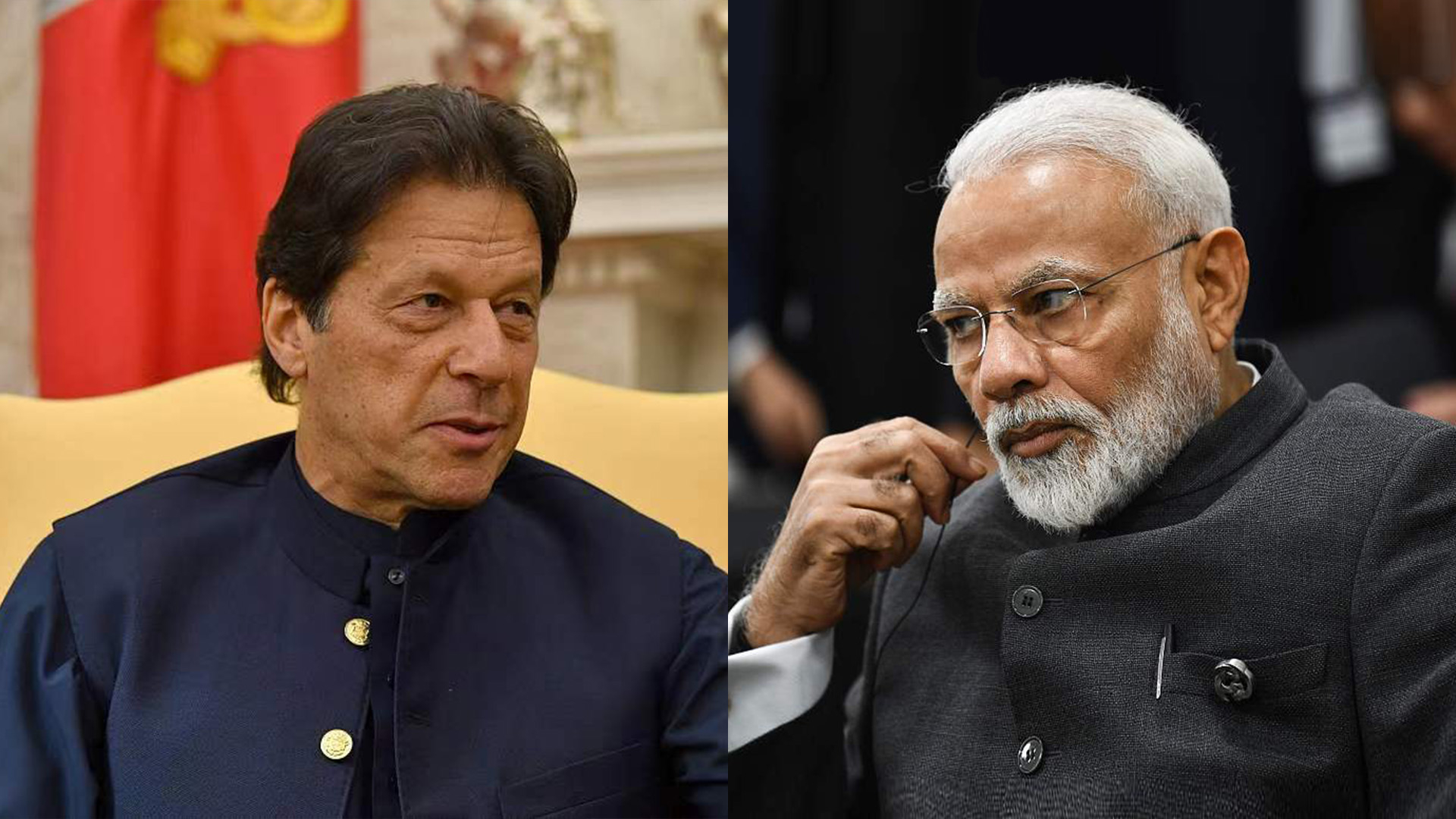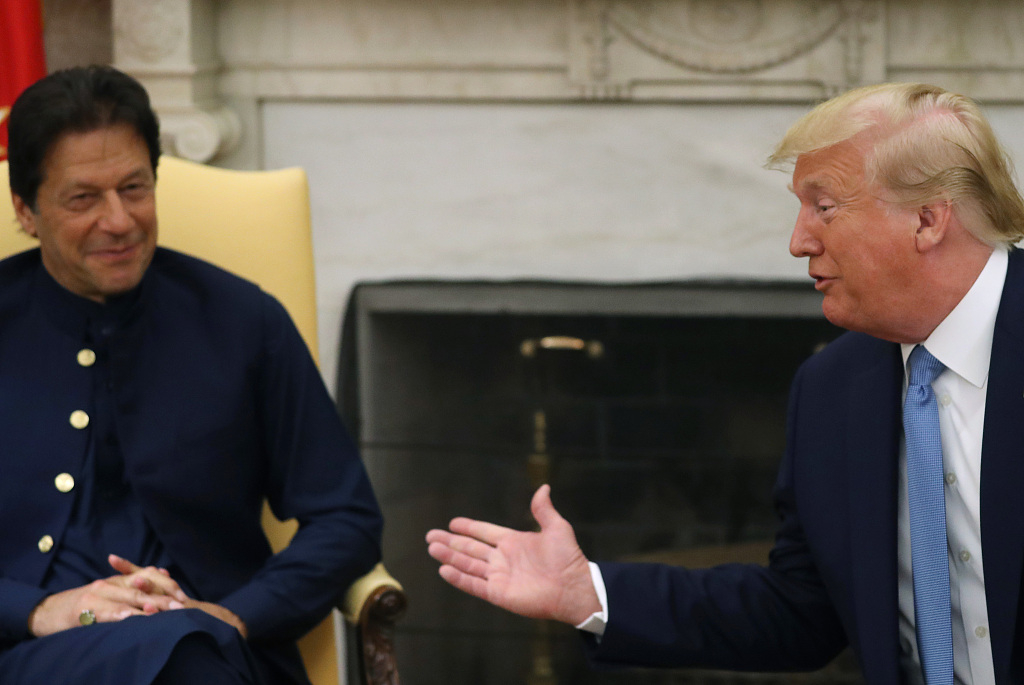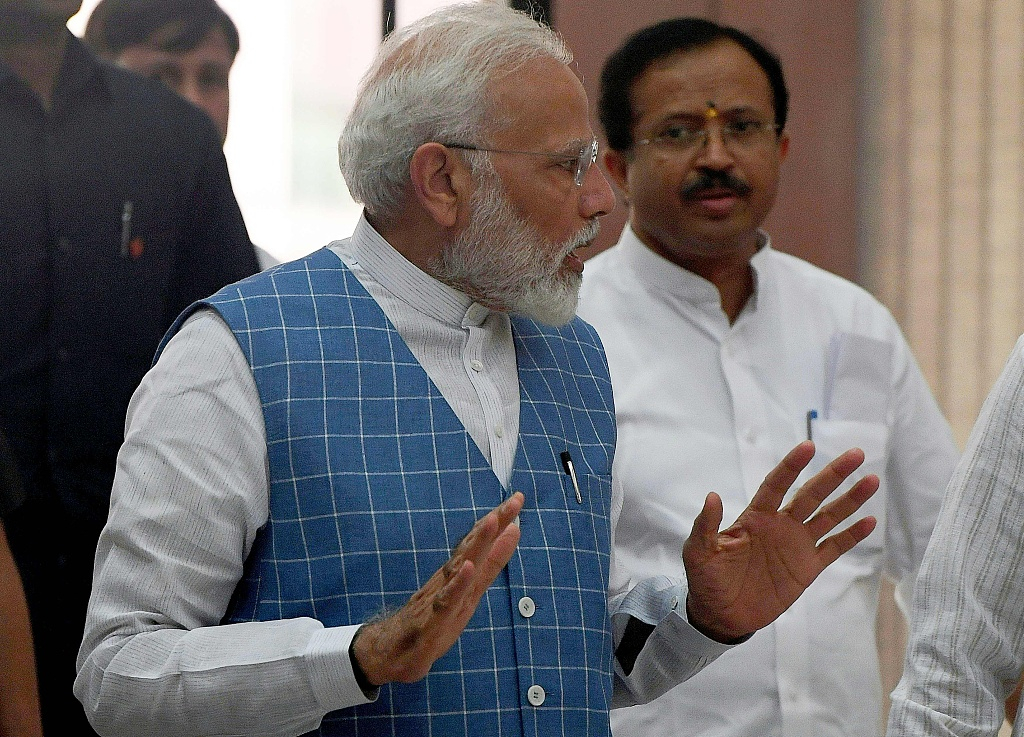

Editor's Note: Shubham Ghosh is an Indian freelance journalist/writer for websites both in India and internationally. He writes analytical and opinion pieces on international affairs, Indian foreign policy and politics. The article reflects the author's opinions, and not necessarily the views of CGTN.
India's foreign-policy masterminds were shocked on July 22 when U.S. President Donald Trump claimed that he had a positive talk with Pakistan Prime Minister Imran Khan at the White House. Given the stance that the President has taken on Afghanistan and Pakistan previously, New Delhi was not expecting this.
President Trump blasted Islamabad on a number of occasions in the past regarding the issue of terrorism. He said openly that in lieu of aid, it has only bluffed Washington. His New Year tweet about Pakistan last year is still remembered vividly by the diplomatic world. Even in August 2017, Trump had taken a strong dig at Pakistan, accusing it of offering safe havens to terrorist organizations and wishing a greater role for India in building a stable Afghanistan.
Trump now has taken a complete U-turn on Afghanistan. And it is not without reasons. First and foremost, Trump wants to end the Afghanistan fiasco decisively before he goes into the election season. Reality on the ground made it difficult for him to achieve his target in the first three years of his presidency. Trump, who doesn't care about political correctness, didn't mince words in exposing Pakistan's game in Afghanistan initially. But, as the election approaches, Trump understood that peace in Afghanistan is a different ball-game, and he tried to salvage the situation by negotiating with Taliban in Afghanistan. It was nothing less than a capitulation for Trump against the complicated facts that dominate Afghanistan politics.

President Donald Trump and Prime Minister of Pakistan Imran Khan meeting in the Oval Office in Washington, DC on July 22, 2019. /VCG Photo
Pakistan will feel vindicated
For Pakistan, it was a vindication of sorts when Trump said he looked up to Islamabad to "extricate" his country from Afghanistan where the U.S. has found itself stuck for almost two decades now. It's a win-win situation for Islamabad and for the West. Vacating Afghanistan will leave it with an advantage by putting New Delhi in a position to face more challenges, especially in dealing with spill-over effects of terrorism in the sensitive region of Jammu and Kashmir.
The current Indian government led by Prime Minister Narendra Modi can't overlook its responsibility. The Modi regime tried to get closer to Afghanistan with the aim of isolating Pakistan. In 2016, Modi tried to display a special bonding with Iran and Afghanistan during a visit to Tehran. Observers saw it as a counter narrative to the Pakistan-China booming relationship. The Indian side was elated that, by joining hands with Pakistan’s other irked neighbors – Afghanistan and Iran, Islamabad was cornered. And the growing deterioration of Pakistan's relation with the United States boosted India even more.

India Prime Minister Narendra Modi gestures while talking at Parliament house in New Delhi on July 23, 2019. India's foreign ministry on July 22 denied the claim that Prime Minister Modi had asked President Trump to mediate the Kashmir conflict with Pakistan. /VCG Photo
Kabul government's loss of importance hurts India
But it looks now that the honeymoon was not to last long. Other developments unfolded around the same time didn't go to its favor. One of them is the growing hostility between the U.S. and Iran. Another is the growing ineffectiveness of the elected government in Kabul.
India has always played a big role in facilitating democracy in Afghanistan since the fall of the Taliban in 2001 – ideologically, politically, and logistically. But the government in Kabul was never in control of things in Afghanistan. And now, with another presidential election coming, its power has almost lost. Instead, the focus has now come on to the Taliban who have resurfaced strongly. And since it has a major patron in Pakistan, Islamabad's importance too has grown. New Delhi can only watch helplessly and regret that it had kept all its eggs in the wrong basket.
Observers in India remain hopeful that India's soft power would have made a serious impact in Afghanistan. India has indeed played a big role in Afghanistan's reconstruction. But when Trump mocked its effort of setting up a library there, it was clear that not many are going to appreciate India’s soft role.
India's lack of border with Afghanistan would always make it a secondary player in Afghanistan, regardless of how much aid is offered. Pakistan has a far more important location when it comes to geo-strategic games in the region. The importance of geography can't be underemphasized, even in today's world. Trump knows it now and Modi can't deny it either.
India also made a wrong assessment of the ground situation in Afghanistan. New Delhi treated the country with a goodwill policy. But soft power alone was not going to be enough for India in an Afghanistan that has become a complicated theater of the great game of power. With several countries looking to make gains in Afghanistan, India has to play a more diverse role as a semi-hard if not fully hard power. But its Afghanistan policy has remained Pakistan-centric with anti-Talibanist characteristics. This selective approach won't help New Delhi in achieving its ultimate goals.
(If you want to contribute and have specific expertise, please contact us at opinions@cgtn.com.)

Copyright © 2018 CGTN. Beijing ICP prepared NO.16065310-3
Copyright © 2018 CGTN. Beijing ICP prepared NO.16065310-3